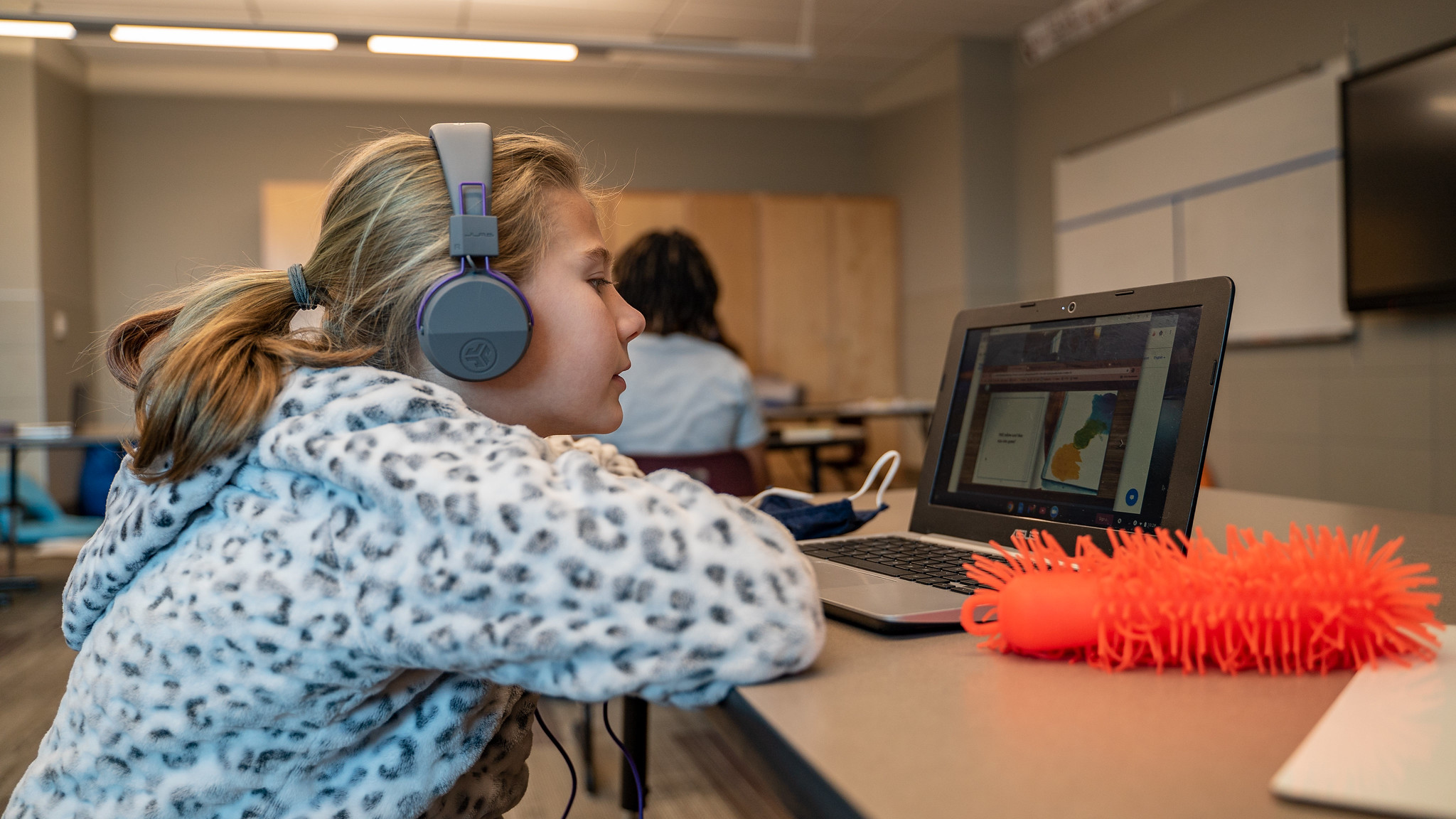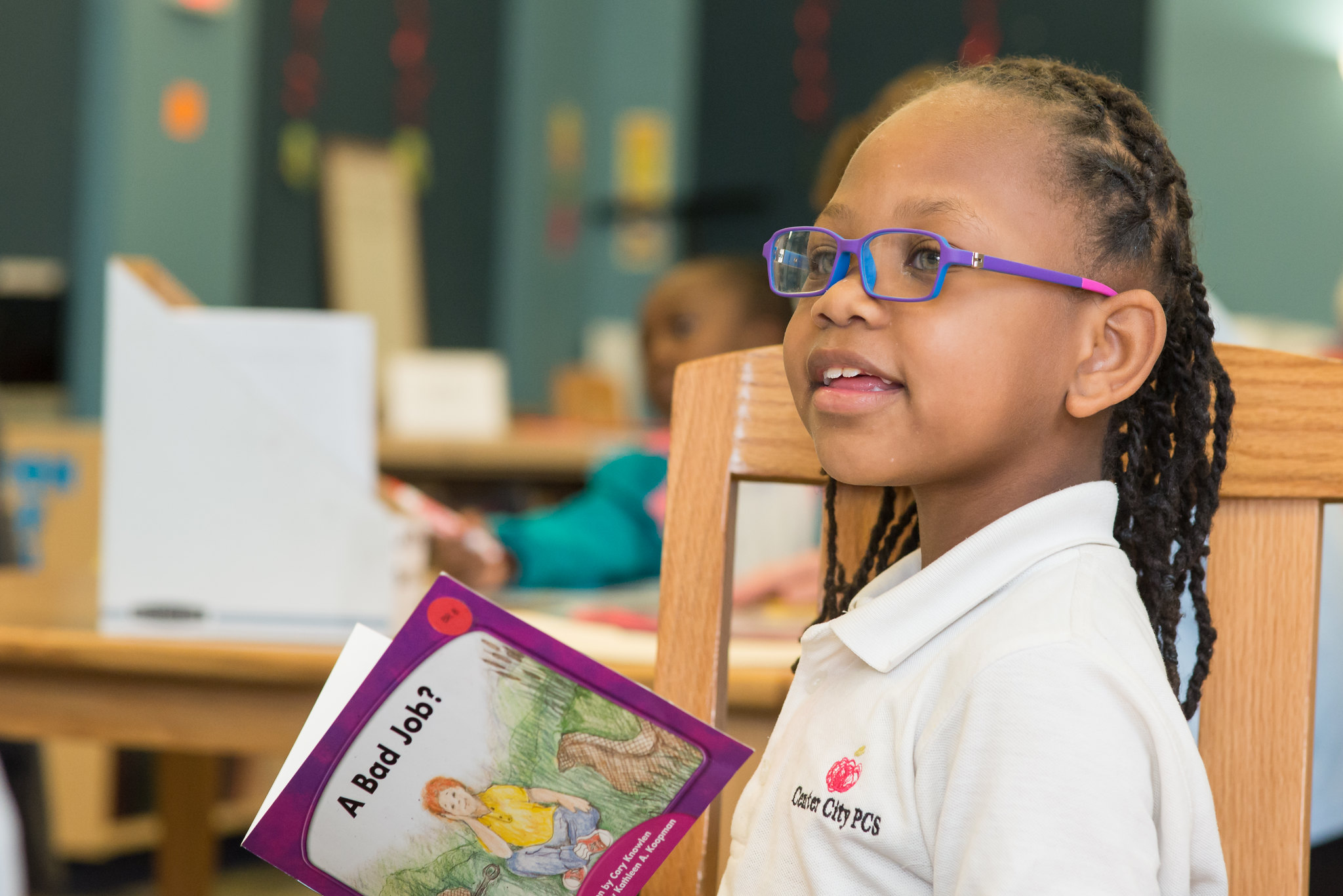As audiobooks continue to gain in popularity, some educators and parents of young readers may be tempted to dismiss them as “misleading” or “lackluster.” But research suggests that audiobooks can help develop some key literacy skills, especially in students who don’t like to read, have trouble sitting still, or have ADHD, dyslexia, or other learning disabilities.
the joy of listening
Like many children who had the privilege of being surrounded by books all the time, I was a bookworm before I knew how to read. my most powerful early literacy experiences were not interactions with print, but listening to verbal narratives in the form of bedtime stories, library read-alouds, and radio dramas. Whether with my family, my class, or alone, these listening experiences with words and stories gave me a playground for imagination free from technical limitations.
You are reading: Benefits of audio books for struggling readers
Now that I’m a busy young adult, audio media like audiobooks and podcasts have become an essential part of my daily and weekly routines. And I’m not alone. Especially since the start of the COVID-19 pandemic, the audience for audiobooks and podcasts has been growing rapidly in the US and UK. it’s easier than ever to discover, access, and consume audio content, and its portability and multitasking capabilities make audio an ideal medium for information and entertainment in a fast-paced lifestyle.
It’s clear that audiobooks are enjoyable and convenient for children and adults alike, but many people doubt that they can help early readers develop their literacy skills. audiobooks feel too easy, too much like “cheating”. There are parents who worry that audiobooks may prevent their children from learning to read written text. But education researchers tell us that using audiobooks is not cheating and that they can be used in different ways to enhance or support the learning process of students.
why listening is not cheating
In this new york times article, psychologist daniel t. Willingham explains that reading and listening are actually extremely similar tasks. When decoding, or figuring out the relationships between letters and sounds, is automatic, the mental processes involved in reading and listening are essentially the same, especially when dealing with narrative text. for those who have not yet mastered phonics or have not acquired sufficient fluency, particularly students with dyslexia, attention deficit hyperactivity disorder (adhd), etc., decoding is an additional cognitive load that can prevent them from using their skills language processing to understand the text. . audiobooks can take that extra load off so that while a student works on her other literacy skills, she can practice the higher-level task of understanding what the text means.
willingham also points out some differences between print and audio that make them suitable for different purposes. for example, listening to readings with expressive prosody (pitch, tempo, and emphasis) can help us understand ambiguous sentences or unfamiliar vocabulary. On the other hand, because reading allows us to slow down, go back, and stop to think more easily than listening, retention of difficult topics is often stronger with written materials. Understanding the nuances and details in an audio text can be challenging, especially when consumed while completing other tasks.
See Also: 10 Best Audiobooks for Tweens | Audible.com
some benefits of audiobooks for early readers
sources: reading rockets, book.fm, new york times, literature trust, we are teachers
develop listening and concentration skills
Listening is fundamental to all kinds of learning, including reading, and active listening takes practice, just like any other skill. young readers may listen to books longer than they can read themselves, and their ability to focus on the story may transfer to their ability to focus on a written text. Having students regularly listen to audiobooks with sustained focus can also help develop phonemic and phonological awareness, or awareness of the sounds in their language. Additionally, students don’t have to sit still to listen to audiobooks like they do with written books, which can make it easier for some to pay attention to the content.
developing fluency
Good audiobooks exhibit fluent, interpretive reading that engages the audience and acts as a model for students to follow as they learn to read more fluently. A practice called reading while listening (RWL) has been shown to improve fluency, especially in second language learners. fluency, or the ability to read with speed, accuracy, and expression, is the foundation of automaticity, which leads to better comprehension. Listening to fluent and expressive reading can also help with comprehension.
supporting decoding and parsing
Listening while following the page also helps students understand letter-sound correspondence and the pronunciation of more difficult words.
growth in understanding
When students are still learning to decode, it can be difficult to put information into a coherent whole as they read. Although students need instruction and practice with decoding, using audiobooks as tools to practice comprehension allows them to take in a story or information and interpret and analyze it without the additional mental work of decoding. Audiobooks lower the barrier for students to visualize what is happening in the story, understand the message of the content, use their critical thinking skills, and make connections to what they already know.
expand vocabulary and prior knowledge
students can access books above their audio reading level, which means they will be exposed to unknown and increasingly difficult vocabulary. Because they can explore a wide range of genres without having to decode new sets of words, they can easily build their knowledge of the world and practice higher-order thinking skills. this is particularly important for older students who are working on more basic decoding and fluency; By bypassing the stressful and possibly embarrassing process of decoding, they can access grade-level material as well as content that better suits their interests and intellectual abilities.
connection and commitment
See Also: 🥇 The Best CPA Review Books and Study Guides [2022 ]
Research tells us that audio elicits emotions more effectively than written words. hearing a human voice tell a story is an experience we are all wired to find enjoyable and emotionally engaging. Research has shown that even students who generally struggle to participate in class enthusiastically engage in discussions that use higher-order thinking when the book is read aloud to them, because hearing the human voice is more psychologically stimulating. there are also studies showing more physiological signs of compromise with audio than video.
Having a trusted adult, such as a parent or teacher, read aloud to students is an important activity for this reason (with the added benefit of a positive social environment). however, this isn’t always practical, and audiobooks have unique benefits when it comes to engagement.
Listening to many different narrators exposes students to a variety of dialects and accents. more familiar dialects, especially for students who speak a non-standard variety, can be comforting, while unfamiliar dialects can encourage greater openness and understanding of those dialects. Listening to a book as a family or class can be a wonderful way to connect with each other and introduce topics of discussion. Parents can also record themselves reading to connect with their children when they can’t be physically close.
Audiobooks can also foster educational independence. students who are allowed to control the speed of the audio, when to start and stop the audio, which books to read, etc. they benefit more from audiobooks because they can exercise the agency to listen at their own pace and according to their own interests. interacting with an audiobook can also confer a sense of accomplishment and support students’ confidence.
next level: text to speech
Although audiobooks are now widely available, not all texts can be found in audio form. For many students, particularly those with learning disabilities such as dyslexia and ADHD, this presents a significant challenge. assistive technology, such as text-to-speech software, can allow students (and adults) to more easily interact with text that is not available as audio. the speechify app, for example, was created by someone who struggled with reading due to his dyslexia and wanted literature and information to be available to everyone, regardless of ability (see his inspiring tedxtalk here).
audiobooks and literacy
While Reading Partners work to support students’ development in all areas of literacy through individual instruction, there are many other ways students can improve their literacy skills. Interacting with literature and informational texts using audio is a great way to build listening skills, build fluency, practice your comprehension and critical thinking, expand your vocabulary and worldview, and have positive experiences around reading.
text-to-speech software
- speechify
- voicedream
- your device’s accessibility settings (from ldrfa)
- mac/ipad
- windows
- android
- chromebook
where you can find audiobooks
(sources: scholastic, pro-literacy)
See Also: 121 Books by Indian Authors | A List of the Best Indian Novels (2020)
- audible (subscription)
- audiobooks for children






